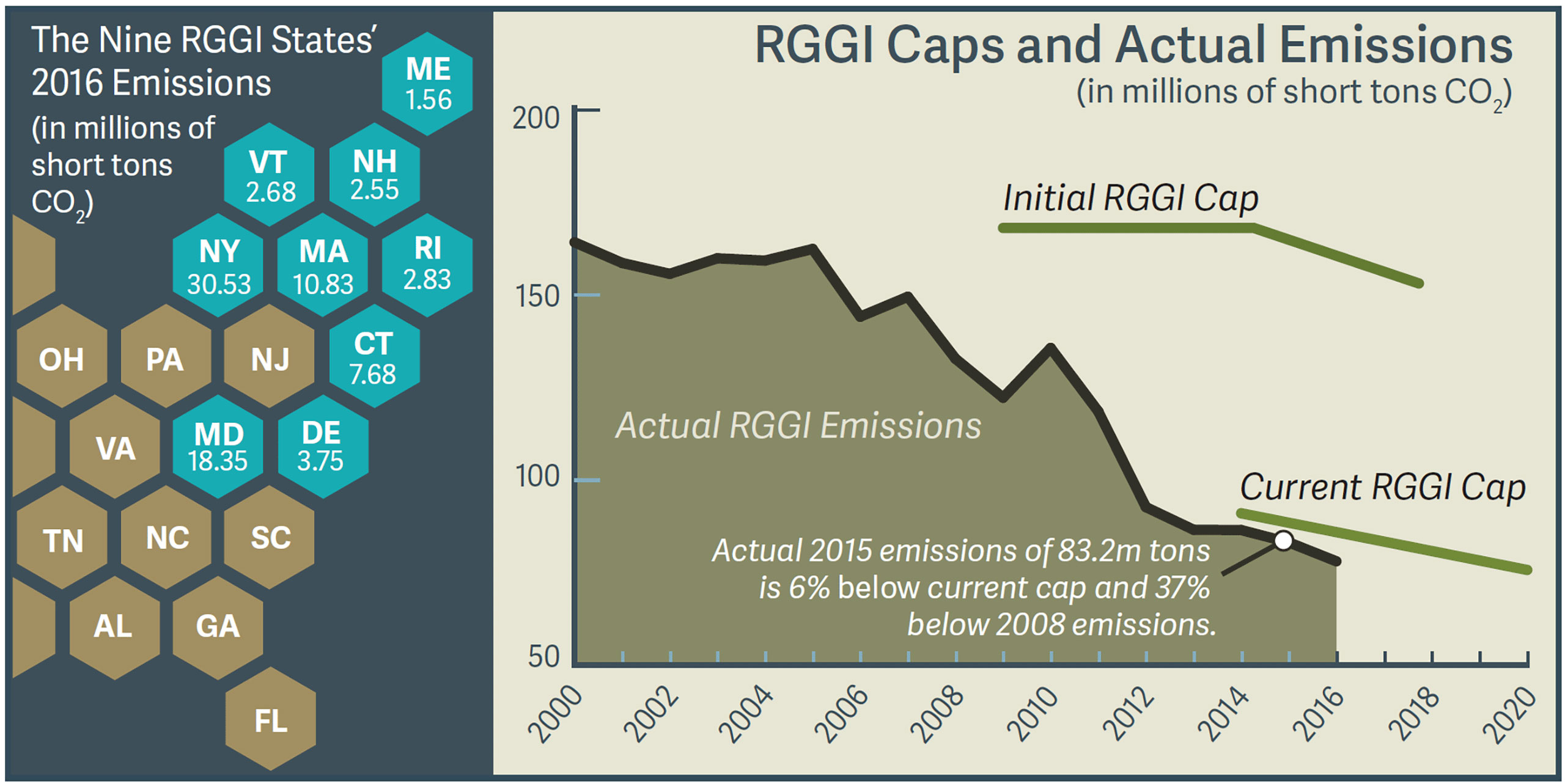-
Evaluating Potential Development of a Broader Market for CO2 Allowance Trading
Around the US, states are considering or developing policies, on their own or in cooperation with neighboring states, to control carbon dioxide (CO2) pollution from power plants, which is a major source of greenhouse gas emissions.
Since 2009, nine northeastern states (Connecticut, Delaware, Maine, Maryland, Massachusetts, New Hampshire, New York, Rhode Island, and Vermont)1 have cooperated voluntarily to participate in the Regional Greenhouse Gas Initiative (RGGI). This is the first multi-state carbon-trading program formed in the country to limit CO2 emissions. Through a mass-based approach to program design, RGGI has exceeded its original goals for reducing the region’s release of CO2 into the atmosphere by millions of tons. (See figure.) The lessons learned from the RGGI program’s successes and challenges may be useful for other states seeking to make similar gains.
Over the years, teams from Analysis Group (including Senior Advisor Susan F. Tierney, Managing Principals Andrea Okie and Pavel Darling, Principal Paul J. Hibbard, and Senior Analyst Ellery Berk) have conducted extensive research on programs and policies for controlling greenhouse gas emissions from the power sector. Analysis Group’s 2016 report – the third in a series of RGGI studies, and authored by Dr. Tierney, Mr. Hibbard, and Ms. Berk – is titled RGGI and CO2 Emissions Trading Under the Clean Power Plan: Options for Trading Among Generating Units in RGGI and Other States.

The Analysis Group report examines RGGI’s potential for participating in an expanded market for CO2 emission allowance trading, as well as whether and how RGGI’s guidelines could be revised to ensure compliance with the Clean Power Plan, the regulatory framework adopted by the US Environmental Protection Agency in 2015. Pointing to RGGI’s successes in designing and operating a liquid, efficient market for trading emissions allowances for the past seven years, the report explains how lessons from this experience are relevant for other states exploring ways to meet their own compliance obligations or state goals for reducing CO2 emissions.
Specifically, the report emphasizes the many features of the RGGI program design that produce long-run efficiencies and cost savings for states, including allowing power plants to participate in a broad, regional allowance-trading market, and enabling states to determine the manner in which CO2 allowances enter the market, such as by auction with proceeds available for use for a variety of public purposes and policy goals.
Analysis Group’s report on the feasibility and economic impact of these markets could provide a starting point for expanding efforts to address CO2 emissions into new regions in the coming years. ■
Notes
- New Jersey was part of the original group forming RGGI, but left the program in 2011.
Sources
acadiacenter.org, Regional Greenhouse Gas Initiative Status Report: Part I: Measuring Success, July 2016; rggi-coats.org/eats/rggi/
Susan F. Tierney, Senior Advisor
Paul J. Hibbard, Principal
Ellery Berk, Senior Analyst
